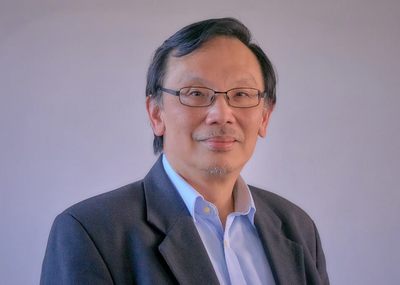Challenges of the 21st Century – a liberal democracy perspective

10 years ago, I had the honour of sitting beside Paddy Ashdown during a dinner function. When I asked him what liberal democracy was, he answered in 3 words 'Liberty, Fairness, Tolerance'. In the weeks leading to this evening, I asked several people - is Liberal Democracy as understood and practised today fit to meet the challenges of the 21st Century?
We can say that by the 20th Century, liberal democracy has triumphed over other economic, social and political systems. Many countries either practise or aspire towards forms of governance, institutions and justice based on liberal and democratic mechanisms. Even authoritarian regimes adopt a veneer of democracy to legitimize themselves.
There are many things we can thank liberal democracy for, as generally for most people, we live in a better world - improved healthcare, longer life spans, we are better educated, and technology has given us many economic and quality of life improvements.
Yet, as we begin a new decade in the 2020s, things are not as they should be. The governance, economic and social institutions that have served us well in the last century don't seem to be as effective anymore. We are facing a climate crisis and technology is going to revolutionise the way we live, work and play. GDP may have gone up but about 90% of the gains went to the top 1%. The gap between rich and poor is growing.
More worrying, in the Western world, especially in Anglo-Saxon nations, there is a growing dissatisfaction with the functioning of democracy. People don't feel that liberal democracy speak for them nor help them with their aspirations; and the vacuum is being filled by populism. Hence, the question - is liberal democracy as currently understood and practiced able to address 21st Century challenges?
I believe the answer is yes but only if liberal democracy becomes credible again and only if liberal democracy is able to adapt to the new challenges. Obviously, how liberal democracy can be fit for purpose for the 21st Century is too complex for a short speech. I would like to make just 2 points.
First Point
The functioning of liberal democracy has become too partisan, especially in countries with first past the post systems. This has led to everything being framed as left or right or centre, where debate is not about informing each other, getting a better understanding of the issues or finding consensus. In a multi-party democracy; when a party is willing to demonise their opponents and manipulate voters with fake news; democracy dies. When a party wants to win at any costs, wants power for power sake and be the governing party forever by destroying all opposition; democracy dies.
We need to transform the practice of democracy.
- Liberal democracy will not regain credibility if all it offers to people is a vote every now and again , with little or no mechanisms in-between for people to engage in decision making that affects real needs in their daily lives.
- Liberal democracy will not regain credibility if it does not change the current economic system that continues to exploit cheap labour, exploit world resources that degrades our planet and funnel wealth to an elite few.
Second Point
We need to understand liberal democracy from a non-Western perspective. Why? Because the ideas, values and practice of liberal democracy as we know it today grew out of a specific set of conditions in Europe about 300 years ago during the Enlightenment. Nobody would quibble over the fundamental principles of liberal democracy such as reason, liberty, equality, openness and rule of law. However, the ways these principles have been understood and applied are coloured by Western eyes, values, culture and religious beliefs.
Liberal democracy in the West is almost like the air we breathe. We are so used to it, take it so much for granted that we assume Western understanding and functioning of liberal democracy is exceptional. We forget that there are other people from other parts of the world, from the developing South or from the East; each with their own history, cultures and philosophies, who see some things and value some things differently from the West.
The 21st Century no longer belongs to the West. Not just because of the reawakening of China who has succeeded in lifting itself out of poverty and becoming a superpower in a short period of time based on values and beliefs that appear alien to Western eyes. There is also India, Japan, Latin America and Africa; all jostling for their place on the world stage. Hence, for liberal democracy to go forward and accommodate a multi polar world it will need to adapt to new realities.
To conclude, I like to return to the definition of liberal democracy given by Paddy Ashdown - Liberty, Fairness and Tolerance. It is imperative that all 3 words are understood and applied together. Perhaps the functioning of liberal democracy in recent years has over emphasised liberty and individual freedom; but not enough on fairness. We need to reverse the maxim 'There is no such thing as society'; we need to work out again how liberal democracy can enable fairer and more equitable societies.
We need to pay more attention to tolerance, even go beyond tolerating others to be open to discourse from other cultures, philosophies and value systems. If we can better see ourselves through the eyes of others, perhaps we can transcend current understanding of liberal democracy to create new thinking, ideas and paradigms to solve the challenges of the 21st Century
.
